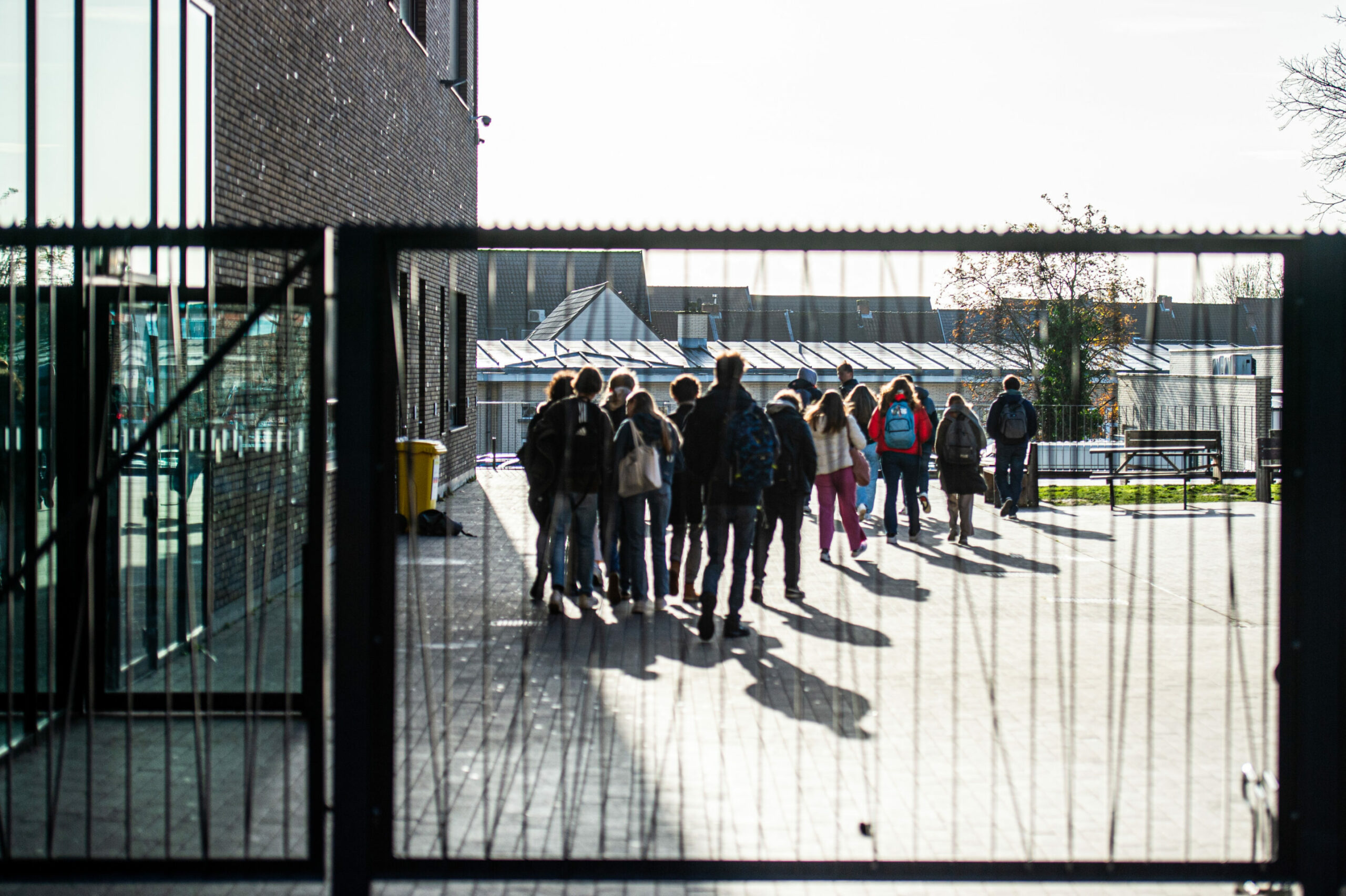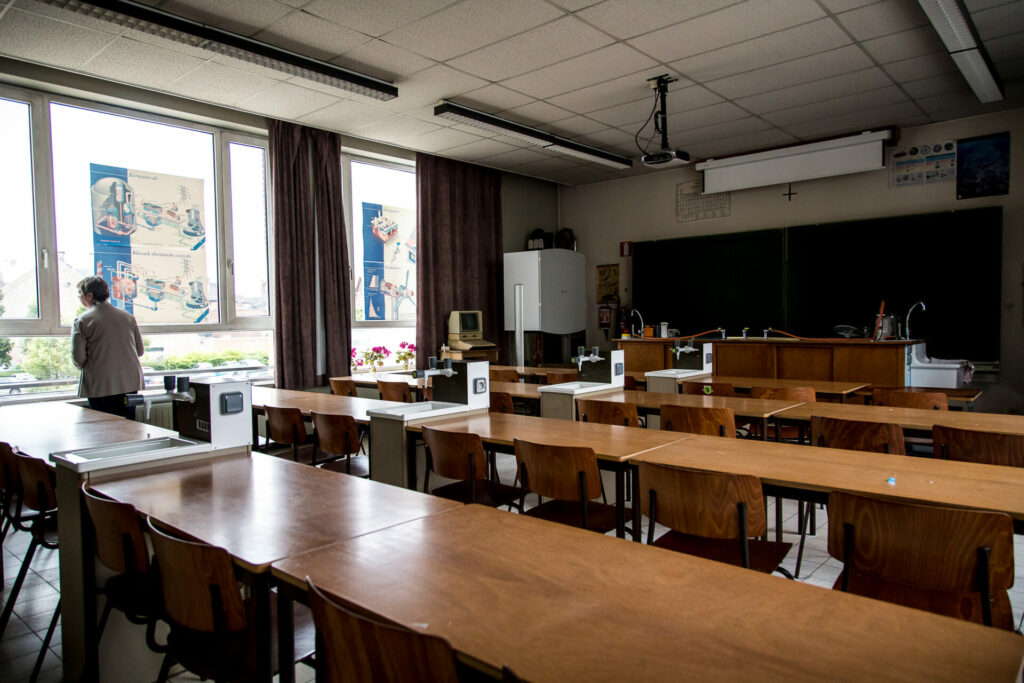The number of school students skipping class, being expelled or exhibiting "problematic" behaviour has reached a record number in Belgium's Dutch-speaking region, according to an annual report by Flanders' Student Guidance Centre (CLB).
In total, 687,835 pupils were referred to the CLB in some form, representing more than 55.6% of the entire school population in Flanders. The CLB is not just involved in disciplinary proceedings, but also career interventions, preventative health care and study support.
"This number of students would easily fill a festival site larger than Tomorrowland and Rock Werchter combined," the centre commented.
Behavioural issues
Problematic students are a notably worrying trend in this year's report.
The CLB noted that the number of students referred to the centre for behavioural problems increased to a record 25,437 in the 2023-2024 academic year. This is more than 12% more than just five years ago, even while the school population increased by just 2.5% in the same period.
Boys were found to be 4.2 times more likely to be referred to the region's student guidance centres than girls. Most behavioural problems occurred when pupils moved from primary to secondary school.
"Challenging behaviour is often a signal that a student is struggling," the report noted. "During the transition from primary to secondary education, reports of challenging behaviour peak. Given this, we are calling for further research into possible causes and corresponding practice and policy recommendations."

School playground. Credit: Belga
The rate of school expulsions is equally on the rise. In special needs secondary education, the expulsion rate peaked at 1.71% last year – double the rate of mainstream secondary school. The same difference is seen in special needs primary education, where expulsions were five times higher than in mainstream primary education.
Expulsions have increased year on year across all educational levels and school types. The CLB notes that many expulsions also happen without their involvement. The true figure is therefore likely much higher.
Boys are overrepresented in these statistics, being 3.5 times more likely to be expelled from school. "We continue to advocate making expulsions an absolute last resort and ensuring that sufficient alternatives exist for this measure," the CLB noted.
Classroom absences
Flemish students are also increasingly truant from schools. Over 31,000 pupils (around 2.5% of the total student population) had a problematic level of absenteeism last academic year.
Since the 2017-2018 school year, unexcused absences (amounting to over 30 half-days absent per year) have increased by 44% and medical absences are up by 57%. The true number is likely even higher, as not all cases are reported to the CLB.
"The increase is so significant that the CLB is unable to work individually with all students. Our available staff capacity has not grown sufficiently to meet the rising demand. There is an urgent need for more preventive measures to keep students in school," the report noted.
The CLB says that it is "strongly committed to preventative actions" in its approach to absenteeism and poor behaviour. Last academic year, it conducted nearly 2,000 interventions for over 34,000 students. The centre calls for greater consultation between Flemish schools and the centre to curb the rapidly deteriorating statistics.
Related News
- Significant rise in young people absent from work
- Number of students in Brussels 'problematically absent' is rising
In reaction to the figures, Flemish Education Minister Zuhal Demir (N-VA) said that parents must now stand by their schools, encourage better behaviour and enforce proper attendance. "These are figures that leave nothing to the imagination. It is all hands on deck for our education. We need to get rid of the mentality that schools solve social problems: they are the victims of them," she said in a press release.
The minister confirmed that she was working on a package of concrete measures to support students and teachers. She noted that "children who display problematic behaviour also have the right to education," but warned that this "must not be at the expense of the learning time of other students and teachers."
The package includes guidelines for good behaviour in schools and parental responsibility, and tackling poor behaviour and aggression against teachers.

